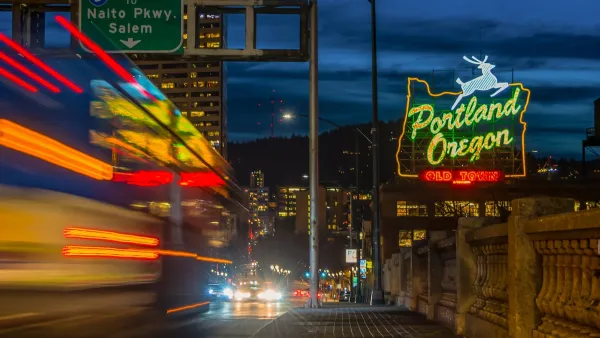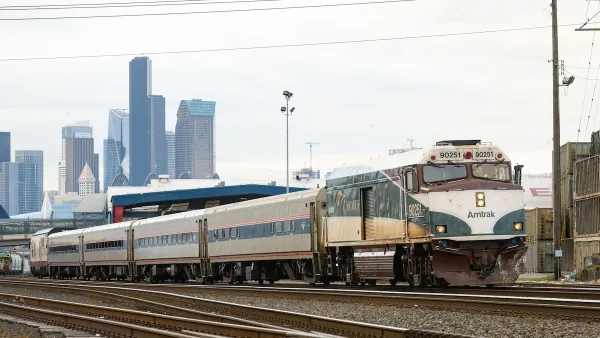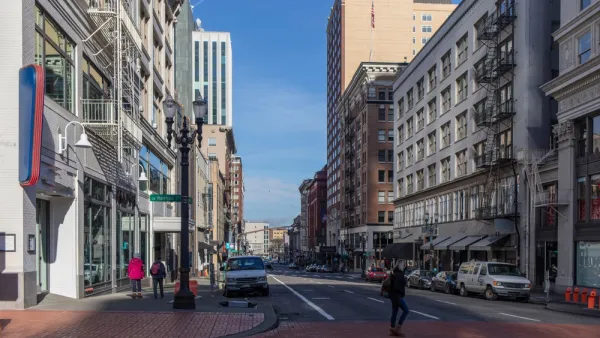The connection between land use and health comes clear in Portland, OR, where some of the poorest citizens face a four-hour round trip to the grocery store.
"When getting to market takes this much effort, epidemiologists consider it a threat to our collective health. Where we live determines where we buy food, which influences what we eat, factors into whether we're fat and can seal whether, someday, we get diabetes or have a heart attack.
Low-income and minority families, prone to obesity and dietary-related diseases, are also more likely to live in communities where nutritious food is hard to come by, the Robert Wood Johnson Foundation reports. These are otherwise known as "food deserts." Nationally, the typical low-income neighborhood has 30 percent fewer supermarkets than higher-income neighborhoods.
Parts of outer Northeast Portland popped out as having particularly poor access to food when the Coalition for a Livable Future analyzed grocery store locations using 2004 data.
'You have people literally living off of Plaid Pantries [a local convenience store],' says Brendan Finn, chief of staff to Portland City Commissioner Dan Saltzman, who oversees the Office of Sustainable Development."
FULL STORY: Portland's low-income neighborhoods are city's 'food deserts'

Analysis: Cybertruck Fatality Rate Far Exceeds That of Ford Pinto
The Tesla Cybertruck was recalled seven times last year.

National Parks Layoffs Will Cause Communities to Lose Billions
Thousands of essential park workers were laid off this week, just before the busy spring break season.

Retro-silient?: America’s First “Eco-burb,” The Woodlands Turns 50
A master-planned community north of Houston offers lessons on green infrastructure and resilient design, but falls short of its founder’s lofty affordability and walkability goals.

Test News Post 1
This is a summary

Analysis: Cybertruck Fatality Rate Far Exceeds That of Ford Pinto
The Tesla Cybertruck was recalled seven times last year.

Test News Headline 46
Test for the image on the front page.
Urban Design for Planners 1: Software Tools
This six-course series explores essential urban design concepts using open source software and equips planners with the tools they need to participate fully in the urban design process.
Planning for Universal Design
Learn the tools for implementing Universal Design in planning regulations.
EMC Planning Group, Inc.
Planetizen
Planetizen
Mpact (formerly Rail~Volution)
Great Falls Development Authority, Inc.
HUDs Office of Policy Development and Research
NYU Wagner Graduate School of Public Service




























